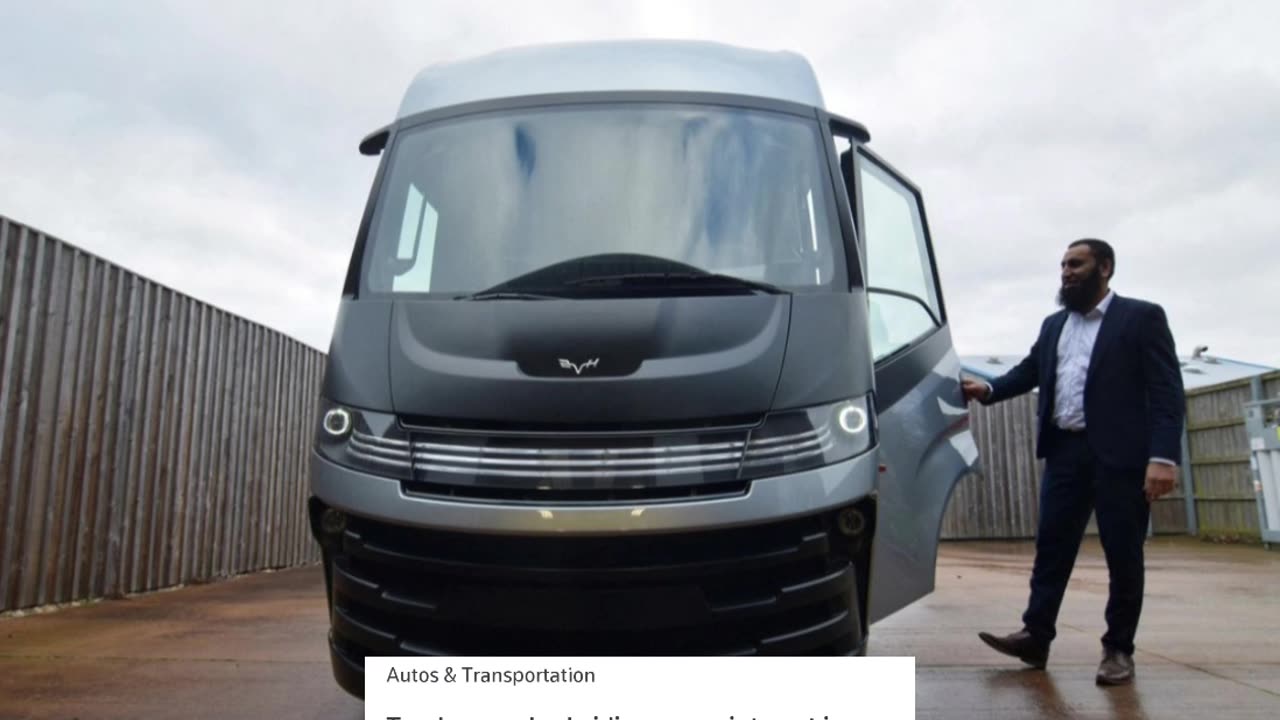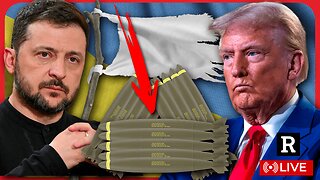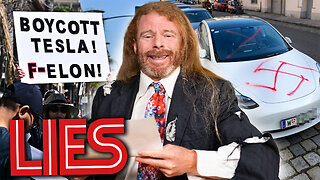Premium Only Content

Truckers and subsidies rev up interest in fuel cell vehicles
Truckers and subsidies rev up interest in
fuel cell vehicles
Interest in using hydrogen fuel cells to power trucks and vans is getting a boost from fleet operators looking for a more practical alternative to electric vehicles and rising government aid, particularly the U.S. Inflation Reduction Act (IRA).
While most of the world's combustion engine cars and short-distance vans and lorries should be replaced by battery electric vehicles (BEVs) over the next two decades, fuel-cell proponents and some long-haul fleet operators say batteries are too heavy, take too long to charge and could overload power grids.Vehicles with hydrogen fuel cells, in which hydrogen mixes with oxygen to produce water and energy to power a battery, can refuel in minutes and have a much longer range than BEVs.
"The fact is we need both BEVs and hydrogen," Daimler Truck (DTGGe.DE) Chief Executive Martin Daum told Reuters. "The amount of energy BEVs need is so enormous that I see a strain on our grid that ultimately it can't fulfill."Daimler Truck will invest up to 15 billion euros ($16 billion) on fuel cells over the next decade, Daum said.
British supermarket chain Asda, with 1,000 large diesel vehicles hauling goods around the clock between hubs and stores, would be forced to add to its fleet if it turned to BEVs, and so is looking closely at fuel cells.
"I'm not closing the door on batteries, but the benefit of hydrogen is it doesn't need that dwell time (for charging) and has better range," Asda fleet manager Sean Clifton said.
Like BEVs, hydrogen's main challenge is infrastructure, which is too scant to support fleets today. But more governments are offering subsidies, including for producing more hydrogen from renewable power or rolling out fuelling stations.
Asda, for instance, is part of a consortium including British fuel cell startup HVS that has received a UK government grant to develop a self-driving hydrogen heavy goods vehicle.
In the United States, the IRA provides subsidies for cheap hydrogen and fuelling infrastructure that industry executives say will speed development of hydrogen semi-trucks and heavy-duty pickup trucks.
The European Union is negotiating renewable energy targets, including hydrogen.
"Thanks to the IRA, things will move faster in the U.S.," said Philippe Rosier, CEO of French fuel cell maker Symbio, a joint venture between Faurecia (EPED.PA) and Michelin .
Carmaker Stellantis is buying a stake in Symbio. Rosier said that will accelerate plans, particularly in North America where it aims to be ready for hydrogen pickup trucks by 2026.
Symbio, which supplies fuel cells for Stellantis vans, expects global fuel cell vehicle sales to reach 2 million units annually by 2030 and wants a 10% share.
Vittore Fulvi, owner of a trucking company based in Perugia, central Italy, runs a fleet of 60 diesel semi-trucks that manage 2,000 km (1,243 miles) - four days driving - on one tank.
Fulvi Trasporti is considering hydrogen because heavy BEV alternatives would cut its load capacity 15% and require daily charging.
"We would need to buy more lorries, more than one for every 10 we own," Fulvi said. "That is not sustainable."
Ford (F.N) fleet customers run large diesel vans up to 600 miles (966 km) daily, often carrying refrigerated goods requiring extra energy that would overwhelm a BEV.
"We need a plan B for those customers," Ford's UK head Tim Slatter said.
Heavy-duty pickup trucks used for everything from delivery trucks to ambulances in the United States could also switch to hydrogen.
With the notable exception of Tesla (TSLA.O), whose CEO Elon Musk derides fuel cells as "fool cells," almost all automakers have invested in hydrogen technology.
Both General Motors (GM) (GM.N) and Toyota (7203.T) are testing fuel cells for larger vehicles including semi-trucks and trains to build scale and lower costs.
Toyota recently received UK government funding in partnership with insurance industry research group Thatcham Research to develop a hydrogen version of its Hilux pickup, with prototypes due this summer.
GM has received a U.S. government grant to develop four heavy-duty hydrogen fuel cell pickups, which should become a "sweet spot" for the technology, said Charlie Freese, executive director of GM's Hydrotec business.
Volkswagen (VOWG_p.DE) truck unit Traton (8TRA.DE) is not currently investing in hydrogen, because it is so saddled with debt from its acquisition of U.S. truckmaker Navistar it can only afford BEV investments, CEO Christian Levin said.
Traton will rely on others for hydrogen if needed, he said. While Volkswagen is not currently investing in fuel cells, it has hundreds of patents around the technology.
-

Michael Franzese
1 hour agoMegyn Kelly’s UNFILTERED Take on The Ukraine War, Trump & Modern Masculinity
4121 -
 1:43:21
1:43:21
Redacted News
2 hours agoBREAKING! UKRAINE AGREES TO CEASEFIRE WITH RUSSIA... BUT THERE'S A BIG CATCH | Redacted News
60.8K118 -
 58:17
58:17
Candace Show Podcast
3 hours agoShould We Feel Bad For Blake Lively? | Candace Ep 157
31.3K53 -
 DVR
DVR
The Nerd Realm
4 hours ago $6.73 earnedHollow Knight Voidheart Edition #19 | Nerd Realm Playthrough
13.9K2 -
 1:17:27
1:17:27
Awaken With JP
6 hours agoThe Current Thing: Tesla Protesting - LIES Ep 82
61.7K30 -
 1:07:08
1:07:08
Sean Unpaved
3 hours agoNFL Free Agency Rolls On! MLB Spring Training Heats Up along with 3x World Series Champ Dave Stewart
22.3K3 -
 2:10:15
2:10:15
Right Side Broadcasting Network
8 hours agoLIVE REPLAY: White House Press Secretary Karoline Leavitt Holds Press Briefing - 3/11/25
117K33 -
 2:06:00
2:06:00
The Quartering
6 hours agoTrump Goes NUCLEAR On Canada, Blasts Massie, Harry Potter Race Swap, Man Humiliated On TV Show
69.8K37 -
 1:03:09
1:03:09
The White House
6 hours agoPress Secretary Karoline Leavitt Briefs Members of the Media, Mar. 11, 2025
74.5K52 -
 1:07:03
1:07:03
Winston Marshall
5 hours agoEXCLUSIVE : Oliver Anthony On Life After ‘Rich Men’, The Christian Counter Culture and The Elites
47.2K9